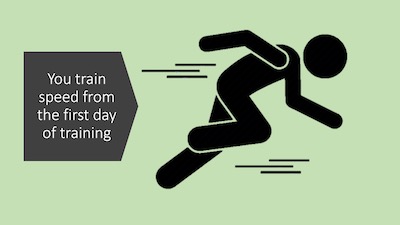“By using a training program involving a gradual adaptation to stress over a prolonged period of time, workouts consisting of both quality and quantity may be accomplished. However intensive training absolutely does not insure successful racing. The training merely makes successful racing possible. A runner must have the all-important factor of mental attitude, a will to win, a subconscious desire for victory, courage, tenacity, and a competitive “killer instinct” in order to achieve racing success.” More wise words from Fred Wilt from the introduction to “How They Train – Half Mile to Six Mile” written in 1959. Take out the word runner and substitute athlete and this applies to any sport!
Vern Gambetta



